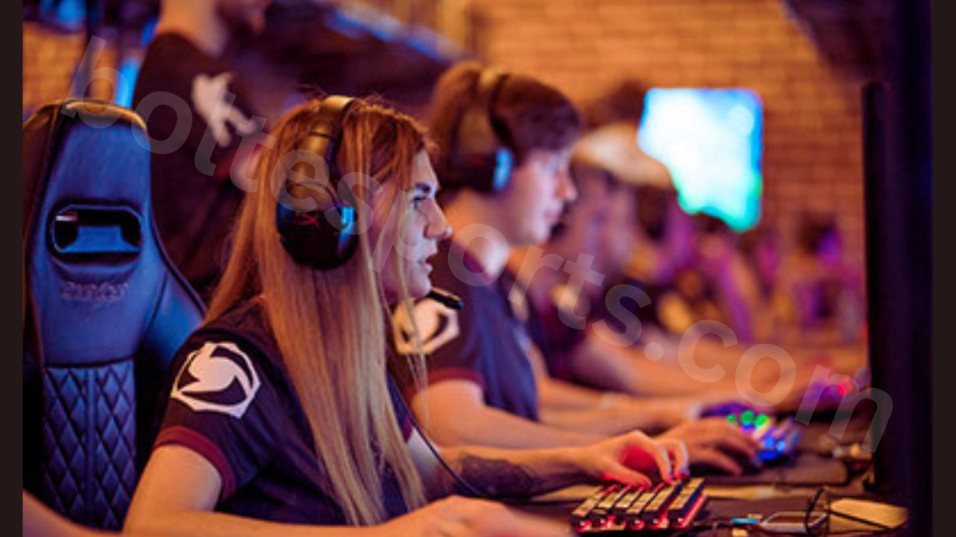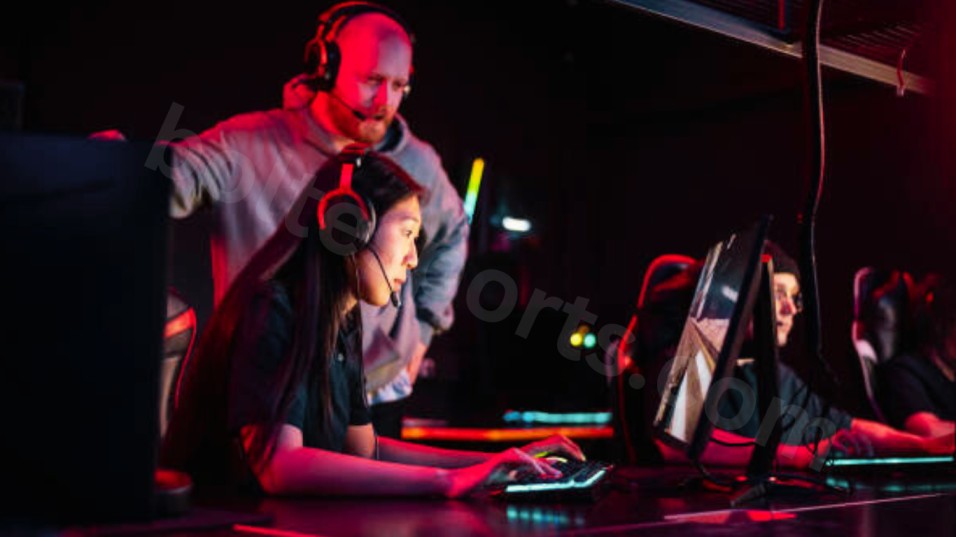Esports Manager:- Esports, or electronic sports, has emerged as a rapidly growing industry, captivating millions of viewers and attracting top-tier talent from around the world. Behind every successful esports team is a dedicated and skilled manager who oversees the team’s operations, strategizes for success, and ensures a thriving environment for players. If you have a passion for esports and possess strong leadership, organizational, and communication skills, pursuing a career as an esports manager could be the perfect fit for you. This comprehensive guide will outline the steps and skills required to become an esports manager and thrive in this dynamic industry. From understanding the esports landscape to building a network and developing essential skills, we will provide you with the knowledge and guidance needed to embark on your journey toward becoming a successful esports manager.
Table of Contents
Understanding the Role of an Esports Manager

As an esports manager, you will be responsible for overseeing the day-to-day operations of an esports team, coordinating with players, coaches, sponsors, and other stakeholders to ensure success both on and off the competitive stage. Some key responsibilities of an esports manager include:
- Team Management: Recruiting and selecting players, managing team schedules and practices, and fostering a positive team environment.
- Strategic Planning: Developing game strategies, analyzing opponents, and working closely with coaches to maximize team performance.
- Financial Management: Handling budgets, negotiating contracts, and securing sponsorships to provide the necessary resources for the team’s success.
- Marketing and Branding: Promoting the team’s brand, managing social media presence, and coordinating with sponsors for marketing initiatives.
- Player Development: Supporting player growth, providing mentorship and guidance, and facilitating opportunities for skill improvement.
To excel as an esports manager, you will need a combination of skills, including strong leadership abilities, effective communication, strategic thinking, financial acumen, and marketing knowledge.
Gaining In-depth Knowledge of the Esports Industry
- Familiarizing Yourself with Popular Esports Titles and Teams: To become an effective esports manager, it is crucial to have a deep understanding of the popular esports titles and the teams that compete in them. Take the time to research and learn about the different games, their mechanics, and the competitive landscape. Follow tournaments and watch professional matches to observe strategies and player dynamics. This knowledge will help you make informed decisions when working with your team.
- Following the Competitive Scene and Tournaments: Stay up to date with the latest news and developments in the esports industry. Follow esports news outlets, watch live streams, and engage with the community on social media platforms. By staying informed about the competitive scene, you can identify trends, analyze the strategies of successful teams, and adapt your approach accordingly.
- Studying Successful Esports Organizations and Managers: Study the operations and management styles of successful esports organizations and managers. Analyze how they handle team dynamics, sponsorships, marketing, and player development. Understanding their strategies and approaches can provide valuable insights and serve as a source of inspiration for your own managerial style.
Building a Strong Network within the Esports Community

- Attending Esports Events and Conferences: Attend local and international esports events and conferences to network with industry professionals, players, coaches, and other managers. These events provide opportunities to learn from experts, exchange ideas, and establish valuable connections. Engage in conversations, participate in panel discussions, and seize networking opportunities to expand your professional circle.
- Joining Esports Clubs and Communities: Become an active member of esports clubs, forums, and online communities. Engage in discussions, share your knowledge and insights, and collaborate with like-minded individuals. Networking within these communities can lead to valuable connections, mentorship opportunities, and potential job openings.
- Engaging with Players, Coaches, and Industry Professionals: Reach out to players, coaches, and other industry professionals for informational interviews or informal conversations. Learn about their experiences, seek advice, and build relationships. The esports community is known for its inclusivity, and many individuals are willing to share their knowledge and help newcomers.
Developing Essential Skills for an Esports Manager
- Leadership and Team Management: As an esports manager, you will be responsible for leading and managing a team of diverse individuals. Develop your leadership skills by learning effective communication, conflict resolution, and motivational techniques. Build a positive team culture that fosters collaboration, trust, and growth.
- Communication and Conflict Resolution: Effective communication is crucial for successful team coordination and collaboration. Practice clear and concise communication both within the team and when interacting with external stakeholders. Develop conflict resolution skills to address any disputes or disagreements that may arise within the team.
- Strategic Thinking and Decision Making: Develop your strategic thinking abilities to devise game plans, analyze opponents, and make informed decisions. Study different game strategies, understand meta shifts, and anticipate trends to stay one step ahead of the competition.
- Financial and Resource Management: Esports teams operate within budgets and rely on sponsorships and investments. Gain knowledge in financial management, including budgeting, contract negotiations, and sponsor relationship management. Efficiently allocate resources to ensure the team has the necessary support to compete at the highest level.
- Marketing and Branding Knowledge: Understanding marketing principles and branding strategies are essential for promoting your team and attracting sponsors. Learn about social media management, content creation, and brand building. Collaborate with marketing professionals to develop effective strategies that enhance the team’s visibility and reputation.
Also, read How to Become a Esports Commentator
Gaining Relevant Education and Experience

- Pursuing Esports Management Programs or Degrees: Consider enrolling in specialized esports management programs or degrees offered by universities or online platforms. These programs provide valuable theoretical knowledge, industry insights, and networking opportunities.
- Volunteering or Interning with Esports Organizations: Gain practical experience by volunteering or interning with esports organizations. Offer your assistance in managing tournaments, organizing events, or supporting team operations. This hands-on experience will provide valuable insights into the industry, allow you to network with professionals, and enhance your understanding of the day-to-day operations of an esports team.
- Seeking Practical Experience through Amateur Teams or Local Tournaments: Joining or managing an amateur esports team can provide valuable experience and help you develop your managerial skills. Participate in local tournaments, organize scrimmages, and learn from the challenges and successes of leading a team in a competitive environment.
Showcasing Your Expertise and Building a Personal Brand
- Creating an Online Presence through Social Media and Content Creation: Establish a strong online presence by leveraging social media platforms to share your insights, industry knowledge, and updates. Engage with the esports community, create content related to esports management, and showcase your expertise and passion for the industry.
- Writing Esports-related Articles or Blogs: Contribute to esports publications, websites, or your own blog by writing articles or blogs about esports management. Share your unique perspectives, strategies, and experiences to establish yourself as a thought leader in the field.
- Attending and Participating in Esports Panel Discussions or Podcasts: Actively participate in esports panel discussions, podcasts, or webinars to share your expertise, engage with industry professionals, and expand your network. These platforms provide opportunities to showcase your knowledge, contribute to meaningful discussions, and gain visibility within the esports community.
Also, Read For today, Garena Free Fire MAX redeem codes
Applying for Esports Managerial Positions

- Crafting a Professional Resume and Cover Letter: Tailor your resume and cover letter to highlight your relevant skills, experiences, and achievements. Emphasize your understanding of the esports industry, leadership abilities, and track record of successful team management. Showcase your unique strengths and how they align with the specific requirements of the role.
- Networking and Leveraging Personal Connections: Utilize your network of contacts, including industry professionals, colleagues, and mentors, to explore job opportunities. Attend industry events, reach out to connections for referrals, and stay active in online communities to stay updated on potential openings.
- Preparing for Interviews and Presentations: Prepare for interviews by researching the organization, understanding its team dynamics, and anticipating common questions. Showcase your knowledge, problem-solving abilities, and passion for esports management. Be ready to present case studies or demonstrate your strategic thinking during interviews or presentations.
Continuing Education and Staying Updated with Industry Trends
- Participating in Professional Development Programs or Courses: Continuously seek opportunities for professional growth through workshops, seminars, and online courses focused on esports management. Stay updated with industry trends, new technologies, and evolving strategies to ensure you remain at the forefront of the esports landscape.
- Following Esports News and Industry Publications: Stay informed about the latest news, events, and developments in the esports industry by following esports news outlets, industry publications, and relevant online communities. This knowledge will enable you to adapt to changing dynamics and make informed decisions as an esports manager.
- Embracing Continuous Learning and Adaptation: The esports industry is dynamic and ever-evolving. Embrace a mindset of continuous learning and adaptability. Remain open to new ideas, embrace innovation, and be willing to adjust your strategies and approaches based on emerging trends and challenges.
What qualifications do I need to become an esports manager?
While there are no specific requirements, obtaining a degree or pursuing specialized programs in esports management can be beneficial. Skills such as leadership, communication, and strategic thinking are essential.
How can I gain practical experience in esports management?
Volunteering, interning, and joining amateur teams or local tournaments can provide hands-on experience.
What skills are essential for an esports manager?
Essential skills include leadership, communication, strategic thinking, financial management, and marketing knowledge.
How can I stay updated with industry trends and developments?
Follow esports news outlets, industry publications, and participate in professional development programs or attend conferences.
Conclusion
Becoming an esports manager requires a unique blend of skills, knowledge, and passion for the industry. By understanding the responsibilities, acquiring the necessary skills, and gaining relevant experience, you can pave your way toward a successful career in esports management. Stay connected with the esports community, build a strong network, and continuously enhance your understanding of the competitive landscape. Embrace opportunities to learn, adapt, and stay updated with the industry
